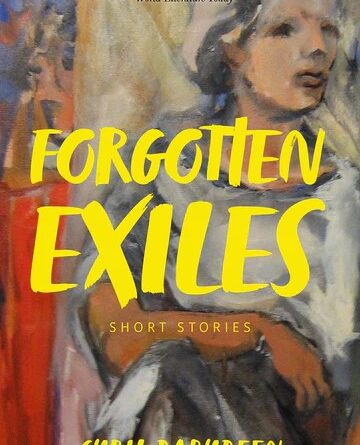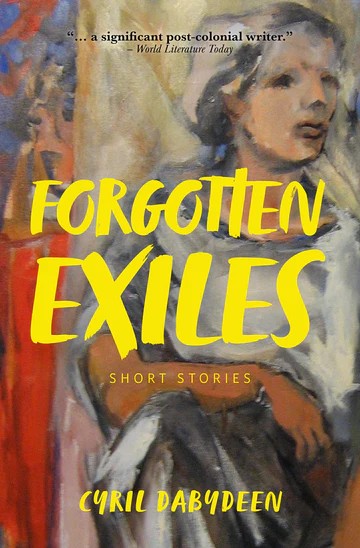Exciting new book of short stories by Sandy Hill author
K.R. Kinnis
It is refreshing to read Cyril Dabydeen’s new book of short stories, Forgotten Exiles (Mosaic Press, November 2024), which has gained high praise from readers. This volume follows upon My Undiscovered Country, a story collection also released by Mosaic Press about two years ago. The author, who lives in Sandy Hill, prefaces his new collection with a quote from Maya Angelou: “The greatest agony is an untold story.” Dabydeen explores exile and displacement: how personal and cultural identities evolve when people are uprooted from their homes. Identity and belonging are central here in the nuanced portrayal of his characters. Some of the narratives in this new volume go back to the 1970s, especially seen in the shift between Canada’s Lake Superior region where Dabydeen first lived and planted trees—giving the stories a genuinely “Canadian” reality—and Guyana where he was born. Whether writing about Africa, the USA or elsewhere, the author blends contrasting settings while crossing boundaries.
The poet in Cyril Dabydeen is evident in these stories. As the reviewer in World Literature Today puts it, “His use of language is concise and meticulous, his scenes dynamic and distilled.” Stories such as “West Meets East,” “My Teaching Days,” “The Guitar,” “Muskeg,” “Forgotten Exiles,” and “The Other Half” are evocative. Dabydeen explained that a good short story writer combines the poet’s sense of style with the novelist’s sense of drama.
Dabydeen frequently references history, both personal and collective; memory and the past are key elements in his fiction as they shape the characters’ sense of self when they recall moments from their past that define their present experiences. He shows the tension created between nostalgia and the need to integrate into new social environments.
Cyril Dabydeen looks into the proverbial mirror and what is behind its cracked glass with stories reflecting an earnestly searching soul, as seen, for instance, in “Welcoming Mr. Anang,” “A Father’s Son,” “Jagnath and Tomby,” and “Black Like Who?”. He also introduces humour mixed with irony in some stories. His style is suffused with his inflection tied to oral and dialectal energy and poetic rhythms—a hallmark of his work.
Cyril Dabydeen has taught writing for many years at the University of Ottawa and has contributed to IMAGE over the years. This new collection adds to the list of his books of fiction, both novels and short stories, that include My Multi-Ethnic Friends and Other Stories, North of the Equator, and My Brahmin Days. His major poetry collections include Imaginary Origins: New and Selected Poems and God’s Spider, published by Peepal Tree Press, UK.
His storytelling is praised as “seamless between past and present, fantasy and reality” (Canadian Literature). The webzine Montreal Serai states: “There is a kaleidoscopic quality to these short stories, a shifting and colliding of the bits of coloured glass held up to the light. Much to share that is not necessarily easy to render in a short story format.” Cyril Dabydeen’s poetic storytelling enhances his themes. The book is a powerful reflection on what it means to live between worlds.

